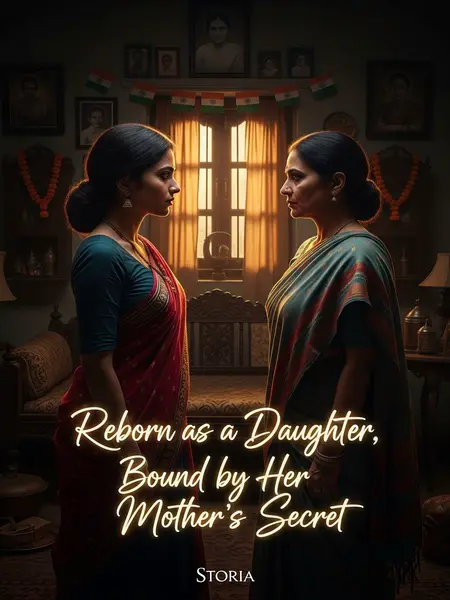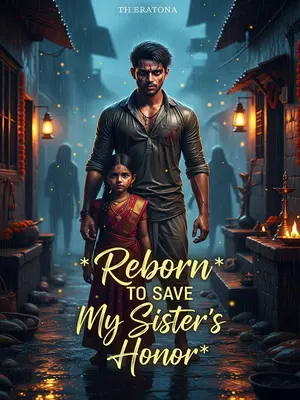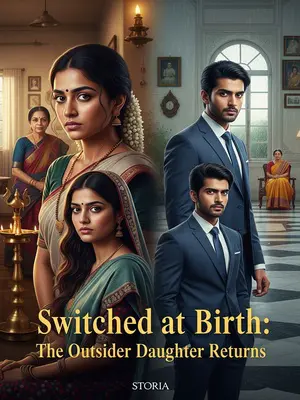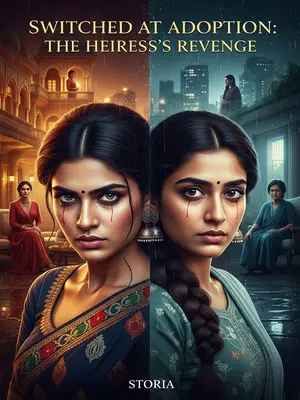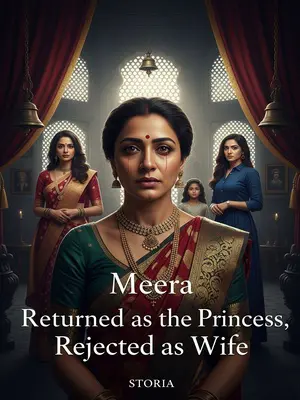Chapter 2: A Daughter Again
I was reborn.
I became a newborn little ladoo of a girl.
My entry into this world was accompanied by the fragrance of mustard oil and burnt incense, the rustling of old sarees, and the chanting of a distant priest. The dai’s hands were rough but careful, and when she handed me over, my cheeks were already smeared with haldi and a red tika, and a garland of tulsi leaves brushed against my chin. Everyone chuckled at my roundness, calling me ‘laddu’ with a mix of affection and hope, as if a sweet would protect me from bitter fate.
When the dai carried me to my father, his face was as long as ever.
The room was crowded with uncles and aunties, all craning their necks and whispering behind their hands. My father’s mustache twitched, his eyes heavy with disappointment, a silence falling over him as he looked at me. The ceiling fan creaked overhead, cutting the thick summer air. Someone coughed; another adjusted their shawl. He stared at me, his thumb rubbing the beads of his rudraksha mala, lost in thought.
Because I was a daughter—again.
Aunty Kamla muttered under her breath, “Arrey Ram, phir se beti?” I caught, even as an infant, the weight of that sigh—so many in the room silently echoing her words. A second daughter meant more dowry, more ‘burden’—so they said. Someone’s slipper scuffed the floor uneasily.
Still swaddled, I summoned all my strength to squeeze out a smile for him.
Maybe it was the memory of another life that gave my lips that little twist, but I forced myself to smile, as if to plead, ‘Don’t be sad, Baba.’ My lips quivered, and a passing breeze lifted the edge of my blanket, as if blessing me for my courage.
Everyone in the verandah marvelled, clicking their tongues in amazement, saying this must be a heaven-sent father-daughter bond.
One of the grandmothers leaned over, touching my feet lightly, “See, even the gods are blessing this one!” Another neighbour piped up, “Shubh shagun hai, bhaiya, beti has rahi hai!” Someone brought out a steel thali and did a little aarti around me. The air filled with laughter and clucking, and even the crows on the neem tree outside cawed more cheerfully, as if announcing good news.
Only then did my father finally take me from the dai’s arms, a faint smile breaking through.
He hesitated, but my little smile must have melted something. His fingers, rough from years of work, trembled as he took me, murmuring, “Chalo, this one’s a fighter.” For the first time that morning, the heaviness in the room eased.
From that moment, I understood: being reborn as a daughter in olden times was nothing like the stories.
This wasn’t the age of television serials where heroines changed fate overnight, nor the fancy tales of princesses in picture books. This was India, before the world turned fast and noisy, where girls like me were expected to blend into the background, their voices kept soft, their dreams tucked away.
